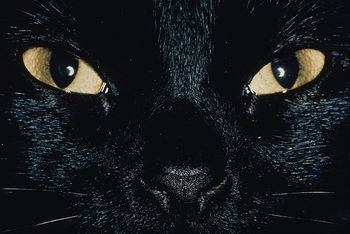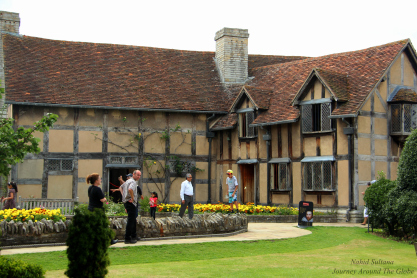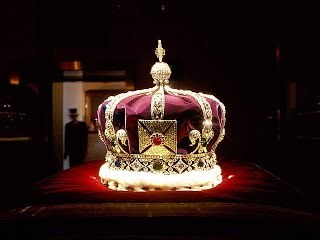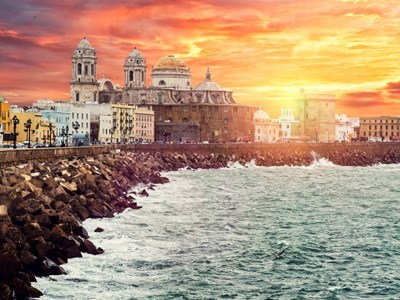Don’t Call It History If It’s Not
[image error]
So, I’m having a whole lot of issue with recent depictions of “historical” dramas. There are major differences between presenting well-known or widely-believed circumstances, and making up personal interactions and motivations that have no basis in the historical record with people who actually existed.
When we’re discussing historical fiction, putting characters who are authors’ or screenwriters’ inventions into real time periods, I don’t have any problem at all with the situation the people find themselves in, or the choices they make, as long as it makes sense for the setting (the period’s culture/religion/politics). But when authors take intense liberties with very biased rumors and gossip that has never been proven by historians, and then dare to call their writing “historically accurate” — well, I make this face:

Take, for big example, the recent slander of the Tudor period by programs such as Reign and The White Queen, and pretty much anything written by Phillipa Gregory regarding that time. I’m no scholar on the 15th-16th centuries, but I know how to do my research; I know how to check the references and find out where each biographer got their information from, and how reliable it was. And I also know to consider both sides of the argument. There’s a saying that “history is written by the winners,” and unfortunately, that has too often been true; but, as part of our advance as a civilization, we truly need to do better than that.
After catching season 2 of The Tudors (back when we had extended cable), I got curious as to how accurate it was, and started looking into that. After several months (not all at once, over a long stretch) of reading up and watching other movies and documentaries, I came to this conclusion: The Tudors did a pretty good job of portraying both sides of the coin (in terms of the Catholic vs. Protestant stuff), and both the merits and the flaws of such pivotal figures in British history as Henry VIII and Anne Boleyn.

Cate Blanchett and Helen Mirren have both received critical praise for pretty accurate portrayals of Elizabeth I (not fully, but certainly not horrifically inaccurate). Compare to Reign, which suggested Elizabeth was constantly losing her head over a man, and hardly qualified to rule, and whenever her seat on the throne was challenged, she apparently threw a fit like a 14-year-old girl — when all the historical records and personal testimonies regarding the Queen’s character state quite differently. And did anybody else see that truly terrible film, Anonymous, suggesting the Virgin Queen was actually guilty of repeatedly producing illegitimate children and even incest?!
But what really drove me crazy about Reign was the absolutely ridiculous depictions of Mary, Queen of Scots, as nothing but a victim (she was a very scheming woman who tried by force to take not one but two thrones that she barely had legal claim to). Nor was that enough for the writers of Reign — they also found it necessary to depict a secret homosexual/crossdressing lifestyle at the royal courts (which we know would not have happened in the 16th century), just to insert a modern social agenda; as well as painting people (like Lord Bothwell of Scotland, who was, by all accounts, a madman) who were definitely the bad guys as heroes and champions of chivalry.
And now there’s the miniseries of The White Queen, which insinuates that the entire dynasty of Edward IV of York was put into place by the practice of witchcraft. Well, what more can we expect from a program based on novels (novels, people, meaning it’s fiction) by Phillipa Gregory? Witchcraft was such a serious accusation in those days that no one’s reputation (especially a woman’s) would have fully recovered from it; so, why then, if most of the English court of the time believed Elizabeth Woodville to be a witch, was she recorded one of the most beloved queens of the age? Her daughter became, in fact, the mother of King Henry VIII — so it turns out Elizabeth I was named after her grandmother.

Making programs and writing books like this aren’t just trying to “present a different view” of history. They’re trying to rewrite history itself.
In art, we get to create things with our own personal bent, and display opinions or ideals as we choose. It’s called creative license, and even if I don’t agree with someone else’s fictional invention, I stand by their right (I feel) to make it.
But when you’re dealing with history, there are some things it’s just not okay to fabricate. Whether you like the outcome of the actual event or not. For example, do I think Anne Boleyn got a raw deal? Yes, I do. However, if I were writing a historical fiction piece about her, it would still end with her execution. Because it’s totally all right for me to decide that she wore a red and gold gown to a party at Court last Tuesday — but not at all to suddenly declare she was sent to a convent after her supposed betrayal of the King and lived the rest of her days in saintly solitude, when that’s simply not what happened.
It’s about preserving the facts — the good, the bad, and yes, even the ugly — for future generations. How will we know where we’re going if we don’t know where we’ve come from?



Daley Downing's Blog
- Daley Downing's profile
- 36 followers



